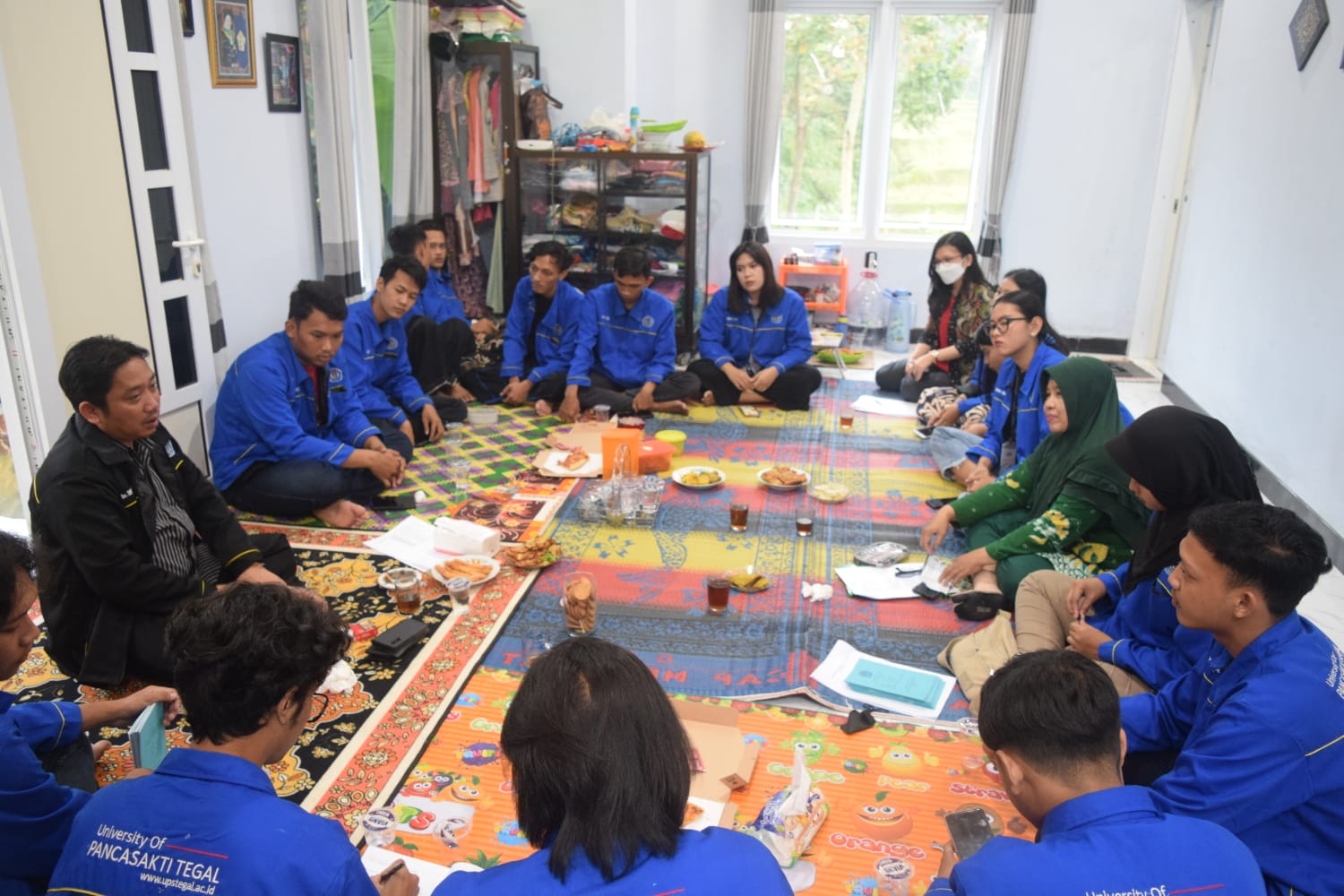Berita Terbaru
Sambangi tempat KKN, Rektor UPS Soroti Permasalahan Sampah
Thursday, 04 August 2022
HUMAS UPS
Wednesday, August 4, 2022, the Rector of UPS and his entourage visited the Pancasakti University Community Service Center, Tegal. During his visit, he was accompanied by the Head of the Institute for Research and Community Service (LPPM) and the Quality Assurance Agency (BPMU) of Pancasakti University, Tegal. His visit this time was in the Sirampog sub-district, precisely in the villages of Mendala, Buniah and Benda, Brebes district.
During his visit, the Chancellor gave encouragement, advice, appeal and support to most of the KKN participants in the Sirampog sub-district. The KKN participants, especially the kordes, explained their respective work programs, especially superior work programs, starting from the fields of Education, Environment, Economics, Social and Agriculture. One example of its superior program is the Mandiri Village Development based on entrepreneurship, skills and management of coffee products, MSME Product Marketing, Village Libraries, Village composting, and eradication of illiteracy for children. The KKN students also expressed their complaints, challenges, obstacles and problems they faced during the KKN. Most of the challenges and obstacles as well as problems, especially the village of Mandala, Buniwah and objects are waste problems which eventually became the special attention of the Chancellor of the Pancasakti University of Tegal.
During his visit, the Chancellor gave encouragement, advice, appeal and support to most of the KKN participants in the Sirampog sub-district. The KKN participants, especially the kordes, explained their respective work programs, especially superior work programs, starting from the fields of Education, Environment, Economics, Social and Agriculture. One example of its superior program is the Mandiri Village Development based on entrepreneurship, skills and management of coffee products, MSME Product Marketing, Village Libraries, Village composting, and eradication of illiteracy for children. The KKN students also expressed their complaints, challenges, obstacles and problems they faced during the KKN. Most of the challenges and obstacles as well as problems, especially the village of Mandala, Buniwah and objects are waste problems which eventually became the special attention of the Chancellor of the Pancasakti University of Tegal.
The problem of waste is a special concern of the Rector of UPS and KKN students, for which there has been no solution in several villages, one of which is Buniwah and Mendala villages. Waste problems start from the poor management system and the non-existent final disposal site. In addition to the lack of public awareness of the importance of waste management, the availability of TPA (Final Disposal Sites) facilities, and the lack of knowledge about the utilization of waste into useful goods do not exist.
There are several other factors that make the problem of waste difficult, including the absence of garbage transporters, the lack of TPS (temporary disposal sites) and the lack of public awareness of the importance of disposing of waste in its place.
There are several other factors that make the problem of waste difficult, including the absence of garbage transporters, the lack of TPS (temporary disposal sites) and the lack of public awareness of the importance of disposing of waste in its place.
Berita Terbaru
UPS semakin diminati mahasiswa asing, Reputasi Internasional Terus meningkat
Monday, 29 September 2025
UPS dan MPR RI Sinergi Wujudkan Generasi Unggul nBerlandaskan Pancasila
Sunday, 29 September 2024
Agenda Terbaru
05
Jul
Online Solo Vocal Competititon
Saturday, 05 July 2025
05
Jul
Online Bussiness Plan
Saturday, 05 July 2025
05
Jul
Online Vlog Competition
Saturday, 05 July 2025

